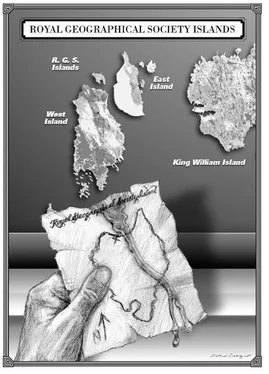“Jim, do you have a moment?”
Walking down a corridor of the White House West Wing, Vice President James Sandecker turned to find the Canadian Ambassador calling him from behind. A distinguished-looking man with bushy silver eyebrows, Ambassador John Davis approached with a taciturn look on his face.
“Good morning, John,” Sandecker greeted. “What brings you to this neck of the woods so early in the day?”
“Good to see you, Jim,” Davis replied, his face brightening a bit. “I’m afraid I was sent to hammer on your good President over my country’s agitation with this business in the Northwest Passage.”
“I’m headed to a meeting with the President on that very topic. A sad tragedy about the ice camp, but I’ve been told we had no warships anywhere near there.”
“A sticky matter nevertheless. The hardliners in our government are blowing it full out of proportion.” He lowered his tone to a whisper. “Even the Prime Minister is rattling his saber over the matter, though I know he’s doing it strictly for political gain. I just fear a foolish escalation of some sort that will lead to further tragedy.” A somber look in the Ambassador’s gray eyes told Sandecker that his fear was deep-rooted.
“Don’t worry, John, cooler heads will prevail. We’ve got too much at stake to let something like this degenerate.”
Davis nodded his head weakly. “I sure hope you are right. Say, Jim, I’d like to express our thanks to your NUMA ship and crew. It has been overlooked in the press, but they made a remarkable rescue.”
“I’ll pass that along. Give my best to Maggie, and let’s plan on going sailing again soon.”
“I’d like that. Take care, Jim.”
A White House aide pressed Sandecker on to the Oval Office, guiding him through the northwest entrance. Seated around a coffee table, Sandecker recognized the President’s chief of staff, his National Security Advisor, and the Secretary of Defense. The President stood at a side cubby, pouring himself a cup of coffee from an antique silver pot.
“Can I get you a cup, Jim?” Ward asked. The President still had dark circles under his eyes but appeared more energized than during Sandecker’s last visit.
“Sure, Garner. Make it black.”
The other administration officials looked aghast at Sandecker for calling the President by his first name, but he didn’t care. And neither did Ward. The President handed Sandecker his coffee, then sat down in a gold wingback chair.
“You missed all the fireworks, Jim,” the President said. “The Canadian Ambassador just gave me holy blazes about those two incidents in the Arctic.”
Sandecker nodded. “I just passed him in the hall. They seem to be taking it quite seriously.”
“The Canadians are upset about our proposed plan to divert freshwater from the Great Lakes to replenish the Midwest farming aquifers,” said Chief of Staff Meade. “Plus it is no secret that the Prime Minister’s poll numbers are way down ahead of a call for parliamentary elections this fall.”
“We have reason to believe there is also an effort to keep our petroleum companies out of the Canadian Arctic,” added the National Security Advisor, a short-haired blond woman named Moss. “The Canadians have been very protective about their Arctic oil and gas resources, which continue to grow in significance.”
“Given our current situation, it is hardly an opportune time for them to turn their backs on us,” said Meade.
“You mean it’s not an opportune time for us,” noted Sandecker.
“You have a point, Jim,” the President replied. “The Canadians certainly have a few strong cards in their hand at the moment.”
“Which they are already starting to play,” said Moss. “The Ambassador gave notice that Prime Minister Barrett intends to announce a full prohibition on U.S.-flagged vessels crossing into Canadian Arctic seaways. Any violation will be deemed a trespass on territorial waters and subject to military reprisal.”
“The Prime Minister is not one for subtlety,” the President remarked.
“He went so far as to have the Ambassador drop the hint that reductions in oil, natural gas, and hydroelectric power exports to the U.S. are on the table,” Meade said, speaking to Sandecker.
“That is playing hardball,” Sandecker said. “We currently obtain ninety percent of our natural gas imports from Canada alone. And I know you are counting on the new infusion from Melville Sound to solve our immediate energy problems,” he added, addressing the President.
“We can’t afford to jeopardize those gas imports,” the President said. “They are critical to overcoming this oil crisis and stabilizing the economy.”
“The Prime Minister’s actions boost the Canadian sovereignty rhetoric he has been touting recently to reverse his waning popularity,” noted Moss. “He seized on the commercial possibilities of an ice-free Northwest Passage some years ago and has strongly argued Canada’s ownership claims. It fits in nicely with his newfound appeal to the country’s traditionalists.”
“There’s a good deal of power to be had in those Arctic resources,” Meade noted.
“The Russians are clamoring over the same thing,” Sandecker said. “The U.N. Law of the Sea Treaty opened the door for additional Arctic empire building based on the undersea extensions of existing territorial claims. We in fact have joined the same subsurface land rush as the Canadians, Russians, Danes, and Norwegians.”
“That is true,” Moss replied. “But our potential claims don’t really impose much into Canadian waters. It’s the passage that is creating all the hysteria. Perhaps because it is the key to accessing and transporting all those Arctic resources.”
“It seems to me that the Canadians have a pretty sound legal basis for calling the passage part of their internal waters,” the President said.
The Secretary of Defense bristled. An ex-Navy man like Sandecker, he had managed one of the major oil companies before returning to public service.
“Mr. President,” he said in a deep voice, “it has always been the position of the U.S. that the Northwest Passage constitutes an international strait. The Law of the Sea Convention, I might add, also calls for the right of transit passage through waterways deemed international straits.”
“Assuming we are on friendly terms with Canada, why do we care if they claim the strait as territorial waters?” asked the President.
“Doing so would undermine the precedents already set in the Strait of Malacca, Gibraltar, and Bab el-Mandeb in the Red Sea,” Moss recited. “Those waterways are open to commercial ships of all nations, not to mention free passage by our own Navy ships.”
“Not to mention the Bosporus and Dardanelles,” Sandecker added.
“Indeed,” replied Moss. “If we were to treat the Northwest Passage in a different light, that could offer legal encouragement for the Malaysians to direct traffic through the Malacca, for example. It’s just too risky a proposition.”
“Don’t forget our submarine fleet,” Sandecker added. “We can’t very well walk away from the Arctic area of operations.”
“Jim’s absolutely right,” said the Secretary of Defense. “We’re still playing tag with the occasional Russian Delta up there, and now we have the Chinese fleet to worry about. They’ve just tested a new class of sub-launched ballistic missile with a range of five thousand miles. It only makes sense that they’ll follow the tack of the Russians by hiding their subs under the ice, in order to preserve a first-launch capability. Mr. President, the Arctic will remain a critical mission area for purposes of our national defense. We can’t afford to be shut out of the seaways that are within spitting distance of our own borders.”
Читать дальше












